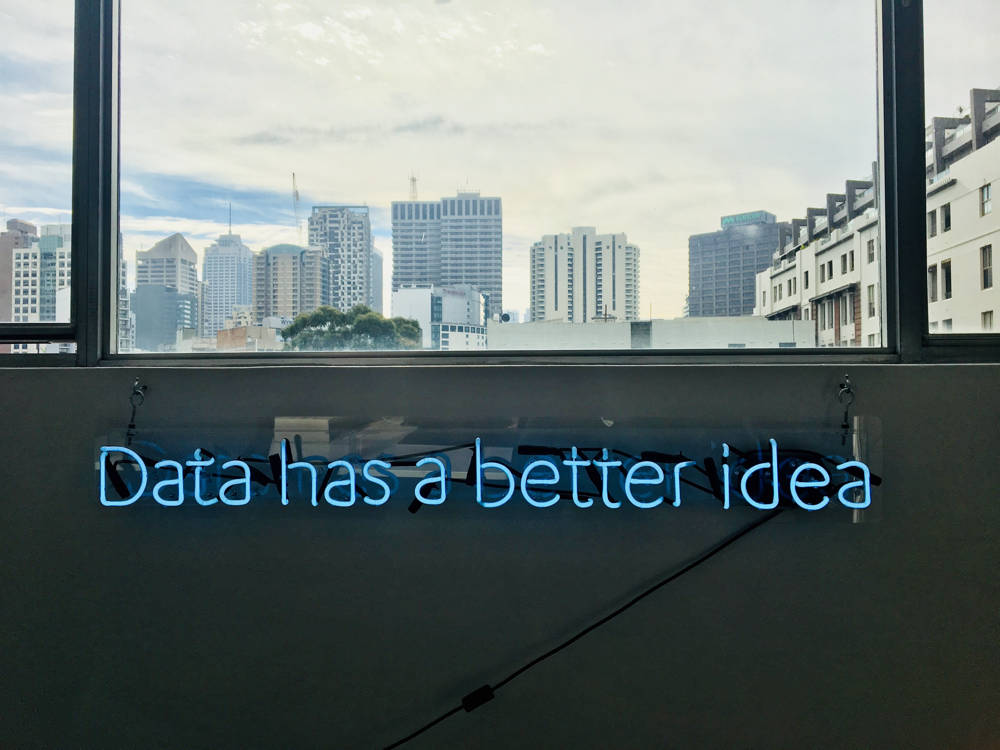What I mean by this is that Google has always asked you not to buy links, not to manipulate results and to focus on the user, not the search engine. The main difference between now and 10 years ago is that Google has the technology to actually back up what it’s telling you to work on within SEO. For instance, 10 years ago Google said ‘don’t buy links’ but they were piss poor at penalising companies that actually did so and any company that did buy links saw massive ranking benefits, resulting in the need to buy links because, much like the Tour de France, it’s how the competition won.
Times have changed and Google has made amazing advancements in A.I, to the point where personalised results have already become common place, finally resulting in the death of chasing rankings and the time for chasing quality traffic (the way it should be).
In the following article, I’m going to run through what we, and many others who work in the industry, are seeing as key areas of development for SEO, and Digital Marketing in general, in 2019. Some of which are a continuous evolution from 2018 and beyond. Others that are just in the infancy and will continue well beyond 2019 but are areas you should be testing, improving and, possibly, taking advantage of now whilst the competition is low. Let’s see what 2019 holds…

This isn’t a new area but is a key area to SEO growth. As much as I don’t like it brands do rank better in SEO. We all like an underdog story but the divide between small and large brands in terms of rankings is growing and the benefit of the brand is becoming more and more obvious as a ranking factor.
The first thing you need to be is realistic. If a brand is spending millions on brand awareness so they are known as the market leader in the industry and you’ve got a 4 or 5 figure marketing budget then you can’t have the expectation to rank top for your core generic search terms.
You can be smart though, understand the audience, understand the data digital offers and most of all be useful. If you are useful then you are creating content, be it articles, tools, apps or videos that the user needs and if they need it, and it is a good resource, then it is more likely to be shared and more likely to help build brand exposure.
Add to this an advertising budget to promote and get in front of your audience in an effective way.
All this is pretty much marketing 101, but for too long SEO has been seen as something different to ‘traditional’ marketing, and it is now essential that SEO is approached in a holistic way to gain the best results in the most efficient manner. Leading nicely onto…

The Agency model is dead, long live the Consultants. The concept that SEO can be farmed out to an external agency and work on it in a siloed environment is obsolete. It’s an area I’ve felt very strongly about for a number of years, leading to No Pork Pies shifting from an Agency to a Consultancy. In reality, most agencies are now largely a consultancy with a delivery team, but that relationship with the consultant is what makes all the difference and will have a huge impact on SEO in 2019.
Why? …because, as mentioned above in the brand section, SEO is more than SEO. SEO needs to involve Customer Experience, Data Insights, Advertising, Content, Social, Web Dev, Business Operations and more. A big focus for any business that wants to take SEO and Digital marketing seriously should invest in Digital Transformation. This means acceptance and integration of digital into every part of the organisation and it is usually the area that results in campaign failure – teams not working together or senior management not really ‘getting behind’ a project.
The key areas of focus here should be on operational efficiency. We’ve worked with a number of organisations where the best results haven’t come from driving more traffic but from pinpoint accuracy of targeting to result in higher conversions through lower costs. If the traffic isn’t generating revenue then the response is to focus on the areas that are and kill the areas that aren’t. In doing so, the profit margins through marketing spend are greater, and the business as a whole can grow, resulting in more investment in marketing areas that were previously inefficient in order to make them efficient. E.g. the PPC terms that had a very high cost per conversion might now be more affordable as you’ve improved the conversion rates on your website.
Once you have an efficient marketing process your SEO will benefit through…

User Experience (UX) has long been an SEO factor. Looking at areas such as bounce rates, time on site, relevance of content etc. but Google has heavily invested in UX through their Marketing Platform and structure of their marketing tools. The restructure and rebrand of the marketing suite shows how they want these tools to work together (see Digital Efficiency above). We have Google Analytics as a central tool to data collection but also have Google Data Studio to pull all the data sources together and turn it into something meaningful. We have Google Optimise for AB testing to improve conversion rates and test UX. We have Google Surveys to better understand your audience. We have Google Ads with improve ability (both in Search and Display) to target specific audiences and personalise the advertising experiences (thus improved UX) and we have Google Tag Manager to make it far easier to track and implement changes to the website without the limitation of waiting a lifetime for a technical team to add a line a Javascript.
Google doesn’t create a free suite of tools because they are bored. This is a core focus area for Google to offer tools that help you understand your audience and offer better experiences as a result.
This suite of tools can ultimately lead to Personalisation. Every year they say it’s the year of personalisation but the ability to personalise through technology already exists. The issue is most businesses don’t have the volume of data required to create meaningful personalisation and that’s why I still don’t see 2019 as a year of personalisation but I do see it as a year of structured data and structured data is a big step to help AI, which will ultimately deliver personalisation.

Google’s focus on AI isn’t going to stop, which means to rank in an AI world you need to optimise for the machine but write for the people. What that means is you need to include Structured Data within the code of your website, so the machine understands what you are telling it.
Structured data could include Reviews – how many you’ve got, what your star rating is, the source of the reviews etc.
It could be your office(s) address, your industry, a person or hundreds of other properties that you can include by using Schema within your site code. Google pulls this information into their site and displays it on their search results but some areas also have a big impact on rankings so it’s time to look at Schema.org, understand what you need to do and get as much Structured data on your site as you can, whilst still writing the content for the user.

The discussion around Structured Data leads nicely into Featured Snippets. Featured Snippets are a great opportunity to target in 2019. They offer position 0 that golden position above the Organic search results. As Organic search gets pushed further and further down the page it’s essential you try to appear ‘above the fold’. PPC takes up most of the screen real estate now but the feature snippet is still up there when one is shown.
A featured snippet could be a map result, news, answers to a question, a video or image. It’s what Google is pulling out as the most likely requirement of the user’s intent and it is a great opportunity to gain more visibility.
Ranking tools can be used to review your core target search terms and highlight when a featured snippet is appearing. Once you know when one exists then you can start the process of optimising for it by reviewing what currently ranks and seeing how you can make your information better so Google uses your data instead of the competition. For instance, a map result might be focused on the number of reviews – so get more positive reviews.
Once you have gathered the data, and built the strategy to how you can rank for relevant featured snippets, it’s time to think why else they are important…

Voice search is growing as more and more home devices go mainstream. Personally, I don’t think they will replace ‘type’ search as my search intent when using voice is very different to when using traditional search. Voice search tends to be a Q&A engine but that is why Voice search and Featured Snippets go hand in hand. Featured Snippets are there to resolve a problem – ‘restaurants near me’, ‘who is Sergey Brin?’ etc, resulting in a short snippet answer. Voice search is the same – ask it a question and you don’t want it to read the top 10 results of Google or the entire content of a website. You want 1 very specific answer – if you rank in the Featured Snippet you are very likely to be the answer that is read out through your Google Home device.
Voice search is only going to grow in 2019 and this raises the interesting question of whether Google is going to start losing Search market share to Amazon as Alexa currently has about a 75% market share of the smart speaker market. It’s rarely been the case where there has been any real competition to Google in the search market but Amazon optimisation is a viable option for SEO in 2019.

As mentioned above, Voice Search is an area to look into in 2019, meaning Amazon optimisation is also an area to test but not just in Voice Search. If you are an e-commerce business, then Amazon is your go-to search engine. 54% of product searches start on Amazon, you might not like it but selling your products on Amazon might be a necessary evil in 2019.
Amazon has more and more paid advertising options available. The ad platform isn’t quite as intuitive and insightful as Google Ads but it is certainly a lot cheaper for your Cost Per Click and, usually, more likely to generate a conversion based on the fact the user ‘trusts’ Amazon, even though they are buying from you. It is a lot easier to convince a user that you are trustworthy when you sell through Amazon than building trust through your own website. You also don’t need to worry about the UX and technical issues your own website may have as Amazon is more than capable at managing that process.
Leading on to another factor to consider with your own site’s SEO…

Site Speed has been a factor to focus on for a while, largely tied to the mobile first indexing of 2018, but site speed is also a UX factor (a slow site is bad UX) and, as such, it is essential you review your site and improve the load time. We’ve focused on this for all out clients recently, not just site speed but all technical factors throughout the site and made sure the site’s are as technically sound as they can be. Some are limited by the site’s code – meaning the only fix is a whole new site so this can be a massive project but, as mentioned earlier in this article, SEO should be integrated into everything you do, and a new website is the perfect opportunity to practice that holistic approach.
Onsite factors, such as technical, have become a big area for SEO as Google has focused on taking some of the weight away from links so this is another good opportunity in 2019 to improve your visibility in Google through a technically bullet-proof website.
This can be an area of SEO that is difficult to learn as it is largely dependent of your technical knowledge and skills, but the bulk of it can also be a one-off project to identify issues, explain the solutions, and implement changes if you are unable to do it yourself. Technical issues will always reappear as a site gets older (e.g. a WordPress site might need an update) but keeping on top of technical requirements has always been a big area of SEO, particularly now when we need to look at a site from a user’s point of view and using multiple devices.

2019 is the year of mobile! (Errr, wasn’t 2018/17/16 the year of mobile?) This is one of those areas that are always going to be a focal point for SEO because mobile searches are getting bigger each year. With Google making an index change in 2018 to focus on mobile first it is extremely unlikely that Google is done with mobile.
Google will continue to push Accelerated Mobile Pages (AMP) to improve load time but also so the user largely never needs to leave Google (I’m not personally a fan of that idea). This does offer the opportunity that Google might push more traffic to AMP sites, particularly through Google News when using a mobile, so AMP could be an opportunity to gain higher visibility.
There is also the opportunity offered through Progressive Web Apps (PWA) and this might be the year for PWA (I actually think it might be 2020 when it becomes a bit more mainstream, but you never know).
PWA are a clever hybrid between a website and an app – working like a website but can work offline, offer notification, loads instantly and offer many other benefits similar to an app that a website can’t traditionally offer.
A PWA will be a big step in the direction of personalisation but it is heavily focused around the content you offer, as the content needs to be developed with PWA in mind and you also need to build a strong content strategy to make sure it’s the sort of content that users actually want – i.e. be useful.

I hear ya, 2019 isn’t the year for content, every year is the year for bloody content! It’s not so much the bullshit of ‘Content is King’, what I’m talking about is content quality and semantics.
As mentioned above quality is important because a simple article is rarely going to cut it in 2019. You need to spend time (and money) on your content to make it useful, look good and work well for the user’s needs.
You also need to optimise for the machine and in this case, we are talking about Latent Semantic Indexing. LSI comes back to Google need to use machine learning/AI as their main process to manage their algorithms. With regards to content, that means understanding the topic and LSI is a process used to achieve that.
It means that semantically related keywords need to be included in your copy with your core search terms. For instance, if you are talking about Iceland you might start talking about Volcano’s – Google will then know you are talking about the country and not the supermarket.
LSI is the process used in machine learning to understand the topics of content so you, as mentioned, need to optimise your content for the machine by understanding the terms contextually related to your core search terms. You can use tools like lsigraph.com to help find these terms and then write the content to make sure you include them, but please remember to write for the user and optimise for the machine I hope we are past the stage of writing keyword stuffed content just so we can include our search term (and our related terms) 15 times in a sentence!

Speaking of understanding content topics and structuring data, this leads onto another area which is going to be big in 2019, Chatbots. Chatbots are a great way to engage with your audience without the resource of having someone sit on live chat 24/7. It can also help drive your audience through the user journey to the point of sales/enquiry without them having to look through your site to find the information (i.e. improve UX).
It is also an area used within advertising, specifically on Facebook where a Facebook Chatbot can be developed and promoted to offer an interactive experience to the audience and drive more qualified leads.
Chatbots can be programmed for simple Q&A of your frequently asked questions but more advanced bots can also be integrated into your site, where structured data is essential to find the relevant information the user is looking for, in a similar way to a virtual assistant.
Programming a chatbot on your site to understand your site content could be a valuable process to make sure your site is optimised for the machine, using Structured Data and allowing Natural Language processing (NLP) of content to come back with the most relevant information. Ultimately, this is what Google’s doing on a much grander scale with their Rank Brain Algorithm.


Ultimately, most of the above recommendations come down to data. Data driven insights around your audience behaviour, data driven research around Google’s requirements, data driven tests to improve user experience, data to inform machines, the list goes on.
Many companies we talk to have the bare bones of data collection setup. It’s important data tracking is set up correctly (as your entire business is going to use this data to inform decisions) and that you are using tools to manage and analyse your digital marketing, not just SEO.
SEO has always been a technical area but as less focus is given to links (I’m not saying link building is dead, it’s not, it’s just not a ‘new’ area for SEO in 2019 – quality link building is still required) more focus needs to be given to understanding the user requirements and making sure the machines can see you’re offering the users the best solution to their problem.

You need data to inform your strategy and your progress but Google says you should focus on E A T – Expertise, Authority and Trustworthiness. These all come down to using content to show you know what you are talking about and getting others to talk about you. It is basically PR – shout loud, shout a lot and get others to shout about you.
Creativity is a big part of this strategy and creating boring old long-form content (like this one!), may not be the most creative process to get attention – think creatively. Areas such as VR and Augmented reality are becoming more popular and are a great way to do something creatively and get attention off the back of it.
In the words of Seth Godin, you need to be a Purple Cow.
Good luck with your SEO in 2019.
If you are interested in getting more insights into the above, then we are running a webinar so you can see more details of some of the topics discussed.
We also offer a free 30 minute consultation service should you wish to discuss your requirements in a more bespoke manner.
SHARE THIS PAGE!